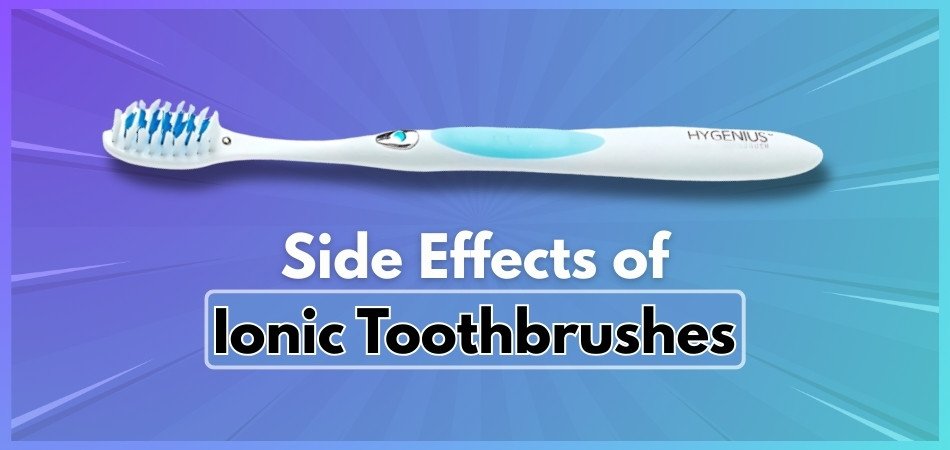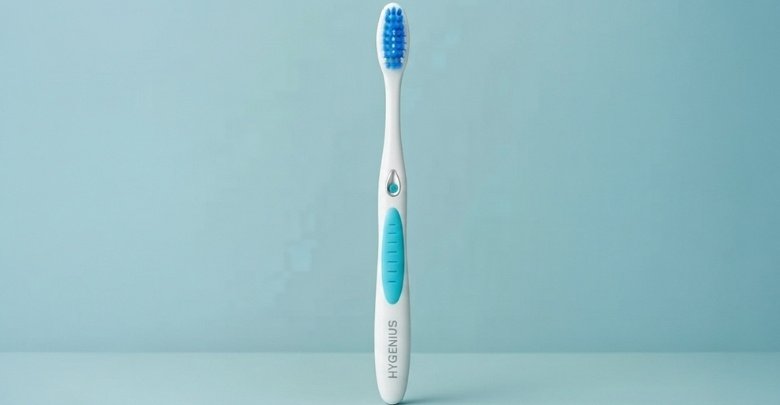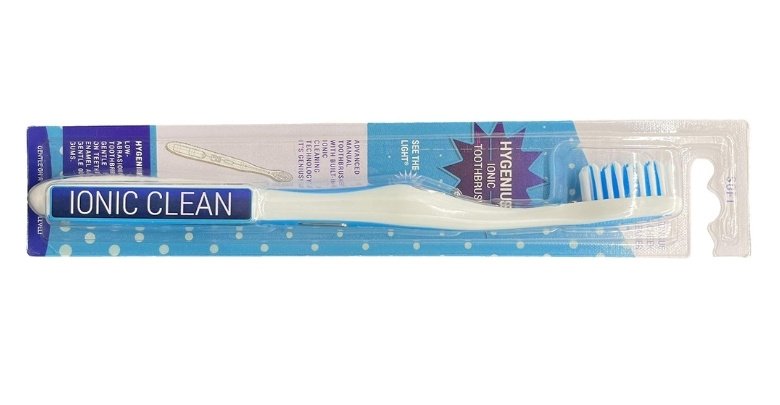Ionic toothbrushes are becoming a go-to choice for people who want something better than the usual brush. They look simple, work quietly, and don’t need batteries or charging. But while they sound like a great upgrade, many still wonder about the possible side effects of ionic toothbrushes.
Ionic toothbrushes are generally safe for daily use, but some users may experience mild gum sensitivity, dry mouth, or discomfort during the first few uses. These effects are usually temporary and tend to fade as your mouth adjusts. The brush does not harm teeth or gums when used properly and follows the same brushing style as regular brushes.
Want to know what else to expect when trying an ionic toothbrush? Or curious if it’s right for your daily routine? Keep reading, because this article shares everything you need to know, including the mild effects that some people notice after using it.
Side Effects of Ionic Toothbrushes
Ionic toothbrushes are getting more popular, and many people are curious about them. They claim to clean better and be gentle on the gums. But like any product, there can be a few things to keep in mind before using one. Let’s look below to know the mild side effects of ionic toothbrushes.

Gum Sensitivity
Some people may feel their gums getting more sensitive when they first switch to an ionic toothbrush. This is because the ions loosen plaque differently from regular brushing. Talking about the safety of ionic toothbrushes, it is generally safe, but some users might feel mild tenderness at first. Usually, this fades as your mouth gets used to it.
Dry Mouth Feeling
A few users notice that their mouth feels drier than usual after brushing with an ionic toothbrush. This may happen because the ions slightly change how saliva reacts during brushing. Drinking water after use often helps with this. It’s not harmful, but it can feel unusual at first.
Initial Discomfort
When trying something new, even brushing can feel strange. Some people say the toothbrush feels “too smooth,” and it doesn’t seem like it’s working. This can cause doubt or mild discomfort in the beginning. After a few days, most users get used to the different feel.
Dependence on Brush Heads
Brush heads need replacing every few months. If you don’t replace them, the bristles wear out and can hurt your gums. Some people might see this as a downside, especially since the heads are not always available in local shops. This can make it feel less convenient.
Light Irritation
The toothbrush has a small LED light that shows when it’s working. For some people, brushing in a dark room can make the light distracting. It’s not a health issue, but it can be annoying for those sensitive to bright lights. Covering it with your finger can reduce the effect.
Adjustment Period
Switching from a regular or electric toothbrush to an ionic one may require an adjustment period. The brushing feels softer, and some may think it doesn’t clean enough. This can lead to brushing harder than needed, which might irritate gums. Over time, the right pressure becomes natural.
How Do Ionic Toothbrushes Work?
Although ionic toothbrushes appear to be simple, there is some science behind them. They are designed to help teeth stay cleaner with less effort. Instead of only depending on hard scrubbing, they use a different approach that makes brushing feel easier. Here is how they actually work:
Ion Technology
The main feature of these toothbrushes is ion technology. Plaque has a positive charge that helps it stick to teeth. The brush releases negative ions, which break that bond and make plaque easier to remove. This way, you don’t need to brush too hard.
Metal Strip Activation
On the handle, there is usually a small strip of metal. When you hold the brush, your fingers touch that strip, and it activates the ion flow. You don’t need to press buttons or turn anything on. It works as you brush naturally.
Light Indicator
Many ionic toothbrushes have a small LED light. This light switches on when the brush is active and ions are flowing. It’s not too bright or distracting, just a sign that the brush is working. After a few days, most people barely notice it.
Brushing Method
The brushing method stays the same as with a regular toothbrush. You hold it, add toothpaste if you like, and brush for about two minutes. In many shared Hygenius ionic toothbrush review posts, people explain that plaque removal feels easier without needing extra pressure. It feels gentle but effective.
Power-free Design
Unlike electric brushes, ionic ones don’t need charging or batteries. They work through light and touch, which makes them simple to use anytime. This also means they are travel-friendly and low-maintenance. You just replace the brush head when it wears out.
Who Should Avoid Using Ionic Toothbrushes?
Ionic toothbrushes are renowned for their ease of use and gentleness. They help clean teeth without needing extra pressure or charging. Still, there are certain cases where they might not be the best choice for everyone. Let’s check below to see who should be careful.

Children Under 16
These toothbrushes are usually designed for teens and adults. Younger children may not hold the brush correctly or keep their fingers on the metal strip to activate it. Because of this, they may not get the full cleaning effect. For kids, a normal soft-bristle brush is safer and easier.
People With Very Dry Mouth
Those who already struggle with dry mouth may find it slightly worse after using an ionic toothbrush. The ion process can sometimes make the mouth feel drier after brushing. Drinking water after use can help ease this feeling. If dryness is already a big issue, another brush type might be better.
Users Sensitive to Light
The small LED light on ionic toothbrushes is harmless, but it can be distracting for people who are sensitive to bright lights. Brushing in dim rooms can make the light more noticeable. While this isn’t a medical concern, it can cause discomfort. In such cases, a standard toothbrush may feel easier to use.
People Who Forget Replacements
Replacing the brush head every few months is important to keep the toothbrush effective. However, some users may forget or avoid buying new heads, which results in worn-out bristles. Old bristles can harm gums and reduce cleaning power. For people who prefer less upkeep, a regular toothbrush might be more convenient.
Those Expecting Instant Results
An ionic toothbrush feels softer and gentler compared to others. Because of this, some users think it’s not working during the first few days. The results are gradual, not instant. People who expect quick, obvious changes may feel disappointed at first.
People With Unique Dental Needs
Those with serious dental problems, advanced gum disease, or special dental work may need a different cleaning approach. While the ionic brush is generally safe, it may not be enough for every situation. Dentists can recommend whether it suits specific needs or if another brush is better.
Tips to Minimize Any Side Effects While Using Ionic Toothbrushes
Usually, ionic toothbrushes are safe, though some users may initially experience mild side effects. The good news is, these issues are easy to manage with a few simple steps. Following small changes in routine can make the experience smoother.
- Use Gentle Pressure: Brushing with strong force can irritate gums, so allow the ionic action to loosen plaque with lighter strokes.
- Stay Hydrated: Sipping water after brushing prevents dry mouth feelings, while also refreshing the mouth and keeping the tongue moist naturally.
- Replace Brush Heads: Worn bristles may scratch gums or reduce cleaning, so change heads regularly every three months for maximum effectiveness.
- Brush in Lighted Areas: Using the brush in a well-lit room makes the LED less noticeable and reduces irritation for light-sensitive people.
- Follow Routine Timing: Stick to two minutes of brushing twice daily, since longer or harder brushing may lead to gum tenderness or sensitivity.
- Combine with Mouthwash: Rinsing with mouthwash afterward keeps freshness longer, reduces bacteria buildup, and balances any dryness caused during brushing.
- Listen to Your Dentist: Regular checkups help confirm the toothbrush is working well and ensure it doesn’t conflict with any special dental conditions.
- Store Brush Properly: Rinse and air-dry the brush head upright to avoid bacteria buildup, protecting gums and overall oral hygiene effectively.
Do Ionic Toothbrushes Have Competitors That Also Provide the Same Features?
Yes, ionic toothbrushes do have competitors that provide nearly the same features, though each one works a little differently. Some popular options include sonic toothbrushes and ultrasonic models, both designed to improve plaque removal without harsh brushing. Many people also compare them with advanced electric brushes that come with timers and pressure sensors. These choices make it clear that ionic brushes are not alone in offering effective and gentle cleaning.
Sonic toothbrushes, for example, use fast vibrations to shake plaque away from teeth and gums. This method is powerful but feels quite different compared to ionic cleaning, which focuses on breaking plaque bonds. People often look at ionic vs sonicare differences before deciding which suits them better. Both types are designed for cleaner teeth and healthier gums, but work with very different cleaning styles.
Ultrasonic brushes are another competitor, relying on sound waves that create small vibrations to loosen plaque and debris. They may seem similar to sonic ones, but usually operate at higher frequencies. These brushes can feel more high-tech but often come at a higher cost. Choosing between these options depends on comfort, price, and personal cleaning preference.
Where to Get Genuine Ionic Toothbrushes?
The use of ionic toothbrushes is growing, but it’s crucial to make sure you’re purchasing authentic, effective models. Many fake or low-quality versions may look the same, but won’t give the same results. Choosing the right source helps avoid wasting money or harming your gums. Keep reading to see the safest places to find original products.

Official Website
The most reliable place to get an authentic ionic toothbrush is from the official website of the brand. Buying directly ensures you receive genuine products, not cheap copies. Official sites also offer deals and discounts. Plus, they sometimes give free shipping on bigger orders.
Trusted Online Stores
Well-known online platforms like Amazon or Walmart are also common places to buy. Look for sellers marked as “official” or “authorized.” Always check reviews and ratings before making a purchase. This reduces the risk of getting fake items.
Dental Clinics
Some dentists and clinics stock original ionic toothbrushes for their patients. Buying from them means you get professional advice along with the product. They may also guide you on proper usage. This option can give extra confidence in your purchase.
Pharmacy Chains
Large pharmacy chains sometimes carry these toothbrushes. Since pharmacies already deal with health products, you can trust their supply chain. Staff may also answer questions about the brush. It’s a safer option compared to unknown sellers.
Specialty Stores
Certain health or personal care stores offer authentic ionic toothbrushes. They usually stock limited but reliable items. While prices may be higher than online, you are assured of genuine products. Plus, you get to see the packaging before buying.
Commonly Asked Questions
Even though ionic toothbrushes are considered safe, people still have small questions about how they work and what effects they may have. Below are some of the most common questions with simple answers that explain things clearly.
Can Ionic Toothbrushes Damage Enamel?
Ionic toothbrushes do not damage enamel because they don’t rely on harsh scrubbing or vibration. The ions loosen plaque, making it easier to clean teeth with light brushing. As long as proper technique is used, enamel remains safe and healthy.
Which Users May Notice Dry Mouth More Often?
People who already have reduced saliva production may notice the dry feeling more strongly. This is because ions can slightly affect the moisture balance during brushing. Drinking water or rinsing afterward helps. Over time, dryness often becomes less noticeable.
What Happens If You Brush Too Hard With Ionic Brushes?
Brushing too hard may still cause gum irritation or tenderness, even though the brush itself doesn’t require much pressure. Over-brushing defeats the purpose of the gentle design. Using a lighter touch gives the best cleaning results without soreness.
Which Side Effects Are Linked to the LED Light?
The LED itself is harmless, but it can distract users sensitive to light. Brushing in darker rooms may make it worse. Some people feel eye strain from the glow. Covering the light with a finger usually solves the problem easily.
What Happens If The Brush Head Isn’t Replaced on Time?
Not changing the head can cause bristles to fray and scratch gums. This leads to soreness, redness, or less effective cleaning. Old heads may even trap bacteria. Replacing every three months helps avoid these problems and ensures gentle brushing.
How Do Ionic Brushes Affect Breath Freshness?
Most users notice fresher breath because plaque and bacteria are reduced more effectively. However, during the adjustment period, some may still feel dryness affecting freshness. Drinking water or using mouthwash quickly restores balance and leaves breath fresh throughout the day.
What Should You Do If Sensitivity Lasts Longer Than Usual?
If gum or tooth sensitivity continues after two weeks, it may point to an existing dental problem. The brush itself is unlikely to be the cause. Visiting a dentist helps identify the issue. Often, proper care and adjustments solve it quickly.
Final Thoughts
Curiosity about modern toothbrushes has grown, and ionic brushes have quickly caught attention for their gentle cleaning style. People love the idea of smooth teeth without needing extra effort, but it’s natural to wonder about how safe they truly are. Knowing both the benefits and possible drawbacks of ionic toothbrushes makes it easier to decide if they fit your routine.
These brushes are safe for most people, though some may feel mild gum sensitivity, dry mouth, or light irritation at first. The good thing is that these effects usually fade once your mouth adjusts, making the brush easier to enjoy every day.
Choosing the right toothbrush is always about comfort and health. If you understand the possible side effects of ionic toothbrushes, you can make a confident choice that keeps your smile fresh and clean.






